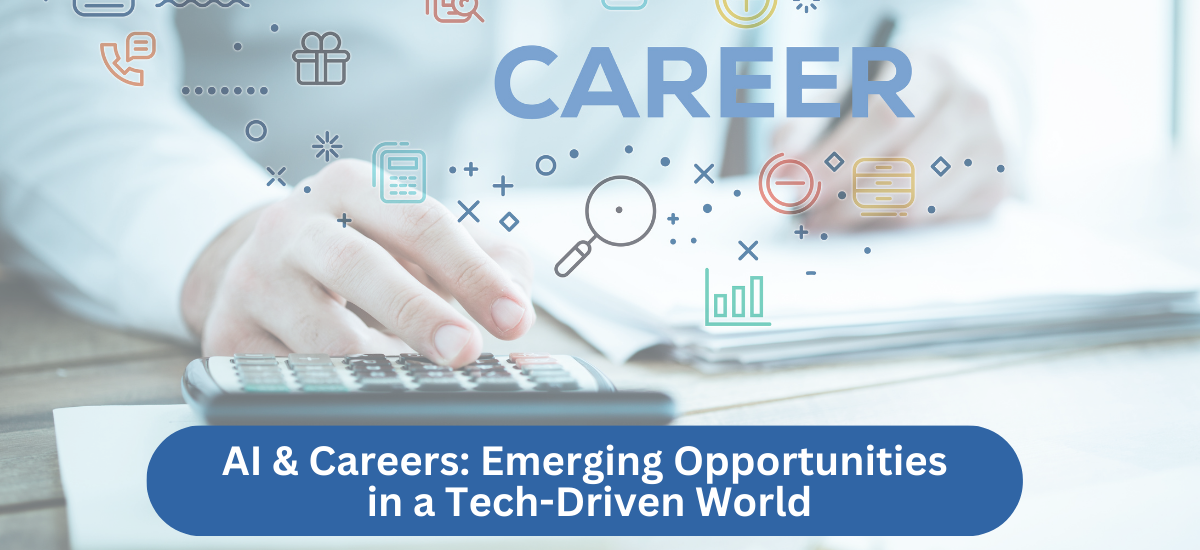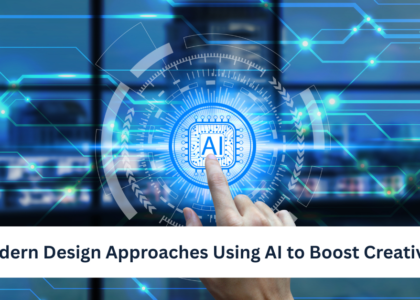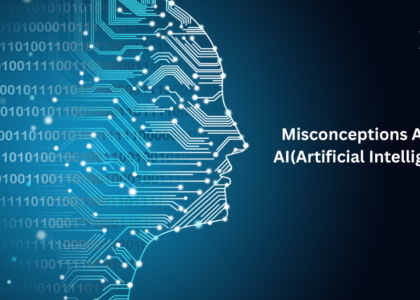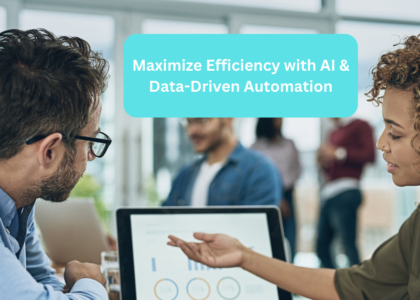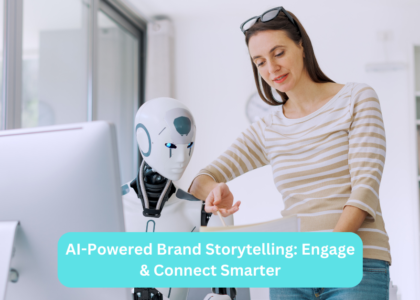1. AI and Its Impact on Careers
1.1. Understanding Artificial Intelligence
Artificial Intelligence (AI) is the simulation of human intelligence in machines programmed to think and learn like humans. Understanding AI starts with grasping basic concepts like machine learning, natural language processing, and neural networks.
The journey of AI began back in the mid-20th century when scientists first experimented with algorithms and mathematical models. Fast forward to today, AI technology is integrated into various industries, from finance to healthcare, where it enhances efficiency and decision-making processes. The current state of AI is marked by significant advancements, including self-driving vehicles, voice assistants, and AI-driven analytics software, showing just how far we’ve come.
1.2. The Role of AI in the Job Market
AI is reshaping the job market and transforming roles across multiple sectors. Routine tasks are increasingly being automated, allowing employees to focus on more strategic and creative aspects of their jobs. For instance, in manufacturing, robots are taking over assembly line positions, while human workers are moving into supervisory roles that require problem-solving and critical thinking.
Industries like customer service, finance, and healthcare are already experiencing profound changes. Predictions suggest that by 2030, AI could displace 85 million jobs but also create 97 million new ones, reshaping the workforce landscape. This means that adaptability will be crucial as we navigate this evolving job market.

1.3. The Importance of Adapting to AI Trends
With AI poised to drastically change the work environment, the necessity for skills development cannot be overstated. As job roles evolve, continuous learning will become vital. Digital literacy, analytical thinking, and technical expertise will be invaluable, opening doors to new career opportunities. Life-long learning initiatives and workshops are becoming increasingly accessible, making it easier to acquire new skills.
Flexibility in career planning is also essential. Embracing change will empower individuals to identify and take advantage of emerging job roles that AI may create in the future.
2. Career Opportunities in AI-Driven Industries
2.1. Emerging Fields in Technology
The tech sector boasts a wealth of AI-related job opportunities. Data scientists, machine learning engineers, and robotics specialists are just a few examples of the roles gaining traction. As businesses become more data-driven, the demand for data analytics skills continues to rise. Moreover, the advent of AI has heightened the need for cybersecurity experts, as organizations look to protect their data from increasing cyber threats.

2.2. AI’s Influence on Traditional Industries
AI doesn’t just flourish in tech—it has immense potential in traditional industries as well. In healthcare, AI algorithms assist in diagnosing diseases, while robotic surgeries enhance precision and recovery times. The education sector is benefiting too, with personalized learning experiences driven by AI, tailored to individual learning styles.
Manufacturing and logistics sectors witness AI optimizing supply chains and production processes, leading to greater efficiency and less waste. These changes reflect a broader trend where AI is not replacing jobs but rather transforming them.
2.3. Entrepreneurship and AI
For those with an entrepreneurial spirit, AI presents exciting opportunities. Startups dedicated to AI applications in various fields are blossoming, from healthcare innovations to marketing automation tools. AI can enhance operations, offering businesses efficiency and data-driven insights that inform strategic decisions.
Aspiring entrepreneurs can explore numerous resources, such as accelerator programs and workshops focused on AI technologies, providing guidance and support as they navigate this promising landscape.
3. Skills Required for AI Careers
3.1. Technical Skills for AI Professions
To thrive in AI careers, certain technical skills are paramount. Familiarity with programming languages such as Python and R is essential, as these are widely used in data analysis and AI development. A sound understanding of data analytics tools and statistical methods helps interpret complex datasets, while knowledge of algorithms can give professionals an edge in model development.

3.2. Soft Skills for AI Success
While technical skills are crucial, soft skills are equally important. Critical thinking and problem-solving abilities help individuals navigate complex challenges posed by AI systems. Effective collaboration and communication skills foster teamwork, essential in projects that involve multiple stakeholders. As workplaces evolve alongside AI, adaptability and resilience will become indispensable.
3.3. Continuous Learning and Skill Development
To stay relevant in an AI-driven world, continuous learning is necessary. A multitude of online courses, certifications, and workshops exist for professionals eager to enhance their skill sets. Additionally, seeking mentorship and engaging in networking can offer guidance and support throughout one’s career journey. Staying informed about AI advancements ensures you remain competitive in the job market.
4. Navigating the Job Search in the AI Era
4.1. Crafting an AI-Ready Resume
Creating an AI-ready resume means emphasizing relevant skills and experiences. It’s crucial to highlight your technical abilities and any projects you’ve undertaken in AI. As many companies use Applicant Tracking Systems (ATS) to screen applications, customizing your resume with keywords from job descriptions can increase visibility.
4.2. Networking in AI Community
Building a network in the AI community can open up various professional opportunities. Attending AI-focused events and conferences allows you to connect with industry experts, while online platforms like LinkedIn provide a good space for networking and engaging with professionals worldwide. Sharing insights and collaborating can lead to unexpected opportunities.
4.3. Preparing for AI Job Interviews
Job interviews for AI roles often include technical questions and assessments. Familiarizing yourself with common interview questions can give you an edge. Demonstrating your technical proficiency is key, but it’s also important to showcase your problem-solving skills through case studies or real-life applications you’ve handled.
5. The Future of Work and AI
5.1. Trends Shaping the Future of AI Careers
Looking ahead, several trends are predicted to shape AI careers. By 2030, the workforce will likely see an integration of AI tools that emphasize flexibility in work arrangements, including remote work. Additionally, prioritizing diversity and inclusivity will play an essential role as various voices and perspectives contribute to AI development.
5.2. Ethical Considerations in AI Careers
As AI’s influence grows, so does the importance of ethics in the field. Professionals need to understand the implications of their work and promote the responsible use of AI technologies. Awareness of regulations and guidelines surrounding AI employment ensures ethical standards are maintained in developing and deploying AI systems.

5.3. Preparing for an AI-Integrated Workforce
To thrive in an AI-driven job market, individuals must be proactive about adapting to changes. Educational institutions have a crucial role in preparing students for AI integration, focusing on both technical and soft skills. This prepares the next generation for shared success between humans and AI, fostering a collaborative future.
FAQs Emerging Opportunities in a Tech-Driven World
Q. What types of careers are most affected by AI?
Careers in technology, healthcare, finance, and manufacturing are evolving rapidly due to AI.
Q. Do I need a technical background to work in an AI-related field?
While technical skills are beneficial, many roles also require soft skills and can be entered through diverse educational backgrounds.
Q. How can I continue to learn about AI developments?
Courses, workshops, webinars, and professional organizations are great resources to stay updated on AI advancements.
Q. Are there job opportunities in AI for non-technical roles?
Yes, roles such as project management, AI ethics, and customer service in AI companies are examples of non-technical positions.
Q. What ethical concerns should I be aware of in AI careers?
Issues related to data privacy, bias in AI algorithms, and the societal impacts of AI implementation are critical ethical considerations.
Conclusion
AI is significantly shaping career opportunities across various sectors. As new roles emerge and traditional industries adapt, individuals must focus on developing relevant skills, networking, and preparing for a continuously evolving job market. Embracing these changes can lead to rewarding career prospects and a meaningful professional journey in the age of AI.


